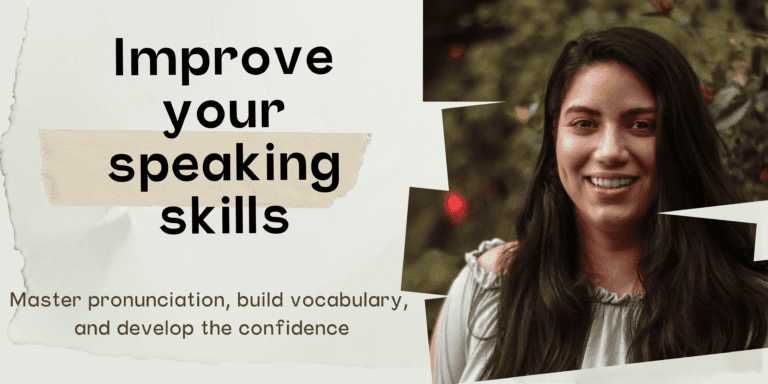Introduction

In today’s competitive world, personal development and communication skills are paramount to career success and achievement in life.
Every time you meet someone—whether it be in a professional or personal interaction. You are making an impression based on how you speak and how you present yourself.
People who speak with confidence and have certainty in their body language tend to earn trust. Develop respect, and receive greater opportunities in almost every general area of life.
‘Good’ communication is not only about speaking English fluently. It is about embodying the processes of listening, thinking about what you want to say, saying it with clarity and appropriate tone. Then adding body language that matches your delivery.
Leaders are not born; they are formed by learning the skills of public speaking, developing emotional intelligence, and mastering interpersonal communication.
Your ability to adapt, influence, motivate, and coordinate depends on how you are perceived to communicate and show up to that environment using your tone, body language, and personality.
With practical language tips and personality insights, you can develop the courage to lead meetings, gain success in interviews, and influence and inspire.
Personal development encompasses self-awareness, being positive, improving your posture, and knowing how and when to respond under pressure with clarity and poise.
Language tips and personality strategies are practically universal for someone personally growing, wanting to communicate globally, and successfully operating in professional contexts today.
This practical guide is designed to provide you with actionable personality tips and language insights.
Why Strong Communication is a Leadership Superpower

Likewise, language is an important component of leadership, since it lays the foundation for the way. Which people perceive your competence, authority, clarity, and ability to inspire action.
Strong communication skills are not just an option for leaders; they the most productive form of power leaders possess. They are the key to trust-building, conflict resolution, and inspired collective action towards shared purpose.
The words of leaders can (or at least should) facilitate decision-making, structure culture, drive. Performance, and engender long-lasting outcomes in both professional and personal settings.
Yet, with all of the information available, many aspiring leaders still fall prey to language blunders. Such as rambling, filler words, addressing the strength of mind without clarity or structure of thought.
Mispronunciations, grammatical errors, or vague, ambiguous language can undermine your or your organization’s credibility based on the audience seeing the message value in the action, and strong intent behind it.
Such mistakes can lead to confusion, low listener engagement, and ultimately create a notion. that the conveyed ideas drive further conversations that final outcomes are less professional, persuasive, or well thought-out.
Becoming an effective communicator takes practice.
Leaders should set aside time to read aloud until it becomes a habitual part of their daily routines, incorporate daily learning and usage of new vocabulary words, and record themselves, notated as needed and listening to the playback for quality improvements.
Daily reading and speaking practice, shadowing native speakers, and observing English-speaking interviews will continue. Consistent practice enhances fluency, articulation, and tone.
Utilizing repetition, intentional listening, and receiving real-time feedback are important parts of establishing mastery in communication style and avoiding the most common missteps through spoken communication in English.
Being prepared for the small quantities and small doses was right once.
Doing something with desired intent each day will lead to better mastery of the process to improve the public speaking experience.
Public speaking promotes confidence which is developed over time and as a process through consistent experience and iterations during a speak.
Practical Language and Personality Tips for Real-Life Scenarios

In an era that is distinctly fast-moving and globalized, it has never been more relevant. To have effective communication skills and confidence in your personality. This goes for whether you are a student getting ready for your first interview, a working professional who needs to lead a meeting with your team. Someone trying to make an impact in a conversation—the skills around communication or personality are often the determining factor.
Language expresses your thoughts, and personality expresses your confidence, which, combined, forms the memory people will have of you. In every circumstance in real life—a big job interview or a casual intro at a networking event. the way in which you articulate your ideas and the way you present yourself will impact the way you are taken by others.
Effective communication is not just about speaking fluent English or using sophisticated language. It is about clarity, tone, insights, empathy, and purpose. Similarly, personality development does not mean changing who you are, but instead, working towards maintaining a better posture, consciousness of your mindset, stored confidence, and emotional intelligence. Altogether, these traits can be learned, put into practice, and honed over time.
1. Job Interviews: Speak Clearly, Think Smartly
Job interviews are one of the best chances to demonstrate your communication skills and general life. Person in society and as a member of the workforce. Job interviews provide the interviewer the chance to assess not only your skills and experience but also how well you are able to articulate and communicate about yourself, particularly under pressure. You only have one chance to make a first impression, and much of the first impression is made on how you speak. It is important to use simple, clear, and correct English as much as possible. If you have been enjoying the interview and begin formulating a more complex sentence or even using conversational text speech or overly casual speech filler like “um,” “like,” or “you know,” you lose command of the sentence and therefore the first impression.
Manage your tone such that the tone is respectful but comes across as enthusiastic. Aside from verbal communication, non-verbal communication is also important. Your posture, demeanor, and use of body language are also noticed by the interviewer, as well as connections. Having consistent eye contact and smiling genuinely throughout the conversation. This is important because when you greet an interviewer politely either with a handshake (if necessary) or verbally if a handshake is not appropriate at that time, your extended body language sends the message that you are there and you are either confident or at least sincerely present during the conversation.
2. Group Discussions: Be Assertive, Not Aggressive
.This reinforces the behavior of actively listening and is a sign of consideration for your fellow group members and an attempt to foster openness. They may not be listening, especially if they are being aggressive, but it can go a long way to showing your leadership potential. Start with actively listening and affirming what other group members have said. You can say something like “I see where you are coming from” or “I in some ways agree with you; however…” This shows you are wanting to work together while still showing you are respectfully disagreeing.
Make sure you are giving your views in a clear, logical way, with examples or rationales, with a calm, steady tone of voice. You should never interrupt, speak loudly, or get all maced up, even when disagreed with in a very strong way. Composure on conflicted matters is a sign of emotional intelligence and maturity as well as confidence to be a leader. Maintain open body language (no rolling of the eyes or arms crossed), and nod occasionally to demonstrate understanding and engagement and to reinforce active listening.
3. Public Speaking: Structure Your Message, Own the Stage
Public speaking can be quite frightening for some individuals. It is one of the most valuable instruments of influence and leadership available. Big or small, when you get to speak and present in front of others, the ability to express your ideas clearly can help build your confidence and credibility. The first step to successful public speaking is to present your speech in a structured way. This includes an introduction, a body (which is informative and clear), and a conclusion. This simple structure prevents you from getting too far off focus and is easy for your audience to follow. This may be a simple question, maybe something statistical, or maybe a bigger experience from your life. This helps engage the audience and sets the tone. You can also use natural gestures to emphasize important points throughout your speech, and don’t forget about pausing during important points.
Pausing communicates importance and gives listeners time to take in what you’ve said. You might want to practice some breathing techniques to settle your nerves. To help control the tone of your voice. Taking a few deep breaths can help you keep a consistent tone and, literally, for your brain to catch up .your speech and avoid sounding rushed or, of course, shaky. Also, consider your attire for the presentation; dressing appropriately should boost your confidence level. Should also match the level of the occasion. Examined and firm body language (i.e., standing tall, making eye contact, and speaking intentionally) is the key to appearing both confident and firm and that you remain in control.
4. Everyday Conversations: Practice Makes You Fluent
Conversations in your daily life offer the most authentic and natural environment to build fluency in any language, especially English. The more you practice these daily activities, the more comfortable and spontaneous you become in communicating your thinking. Whether it is ordering food, talking with friends, getting directions, or just chit-chatting with coworkers, each of these interactions is a perfect opportunity for improvement. These day-to-day moments allow you to practice vocabulary and sentence structure and build your confidence to speak.
One of the best ways to improve learning is to immerse yourself in English as densely as you can. Try listening to English songs, watching movies or YouTube scenes with subtitles. Trying to repeat some of the lines to mimic the pronunciation and tone. Practice speaking English in front of a mirror; this will allow you to experience and see your expressions and body language to allow you to sound natural and will help you speak with confidence. Start a vocabulary journal! Write down new words and phrases that you learn each day, and construct sentences using these words and phrases. Learn one helpful phrase every day, and try to use it in a conversation. Record yourself speaking and then listen to your recordings; this will help you improve your pronunciation as well as clarity.
5. Social Media & Online Meetings: Be Polished and Professional
In a digital-first world, it is equally important to maintain an online presence to manage your offline persona. Whether you are in an online meeting, video call, or posting on social media channels. The way you speak, write, listen, and act can create either a positive or negative impression. In professional virtual meetings, make your speech clear and pace it thoughtfully. Use earphones to limit background noise, or mute your mic if you are not speaking. Dress yourself neatly on top (at least) so you feel more confident in front of your computer. Whoever you are meeting knows that you care about the meeting. Other tips to make you look more professional in virtual meetings are lighting, a neutral background, and camera placement.
Sit up straight to convey energy and positivity, and keep your facial expressions engaged to represent attentiveness. Try not to multitask while in a meeting, and ensure you listen attentively before going back to your meeting invitation. When using social media, please consider thinking before you post content. How did you word things, and did you use respectful language? Use proper grammar and keep your tone positive. Don’t post anything controversial or offensive that could hurt your personal and professional reputation. The language you use in social media content, comments, and messages is a reflection of your personality and maturity level.
Conclusion
The ability to communicate effectively and possess a strong personality are not optional skills anymore. They are necessary tools to accomplish your goals in personal, academic, and workforce areas. In work interviews, group discussions, public speaking club, common conversations. Even the new digital areas in social media and online meetings, your language the way you will be viewed. Every real-world scenario can be an opportunity to exert simple. Effective language and personality practices that will help you improve your confidence very quickly. When in job interviews, we can use clear and concise language and maintain a calm and confident personality. When in group discussions (such as class discussions), being assertive and able to acknowledge others. Opinions will show everyone that you are mature, you are a leader, and you are emotionally intelligent!
When in a public speakingdisplaying positive body language, and speaking with intent will remove the intimidation factor of public speaking. Regular conversations will normally give you the optimum opportunity to practice communicating. Which will help you build fluency and authenticity and a more natural communication style. In any virtual situation, your professionalism, tone, and digital mentality about your professionalism will leave an observation that will represent your real-world personality.
